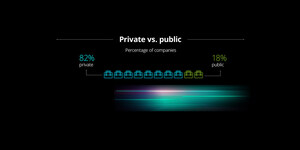Deloitte Survey: Majority of Insured Consumers Satisfied With Current Health Plan — But Concerned About Changes Health Care Reform Act May Bring
61 Percent of Respondents Are Knowledgeable of the Health Reform Act; 38 Percent Are Not
WASHINGTON, June 10 /PRNewswire/ -- Of the 82 percent of consumers surveyed who consider themselves "well" or "adequately" insured, nearly all (96 percent) are somewhat or very satisfied with their health plans overall, according to a new Deloitte poll. (www.deloitte.com/us/consumerhealthpulse) Many are concerned the new health reform law will bring about significant changes to their current coverage. Of those enrolled in employer-sponsored health plans, 61 percent believe their employer will reduce benefits for dependents and retirees and 32 percent think employers will probably pay the penalty and discontinue health coverage for employees altogether.
"Anxiety about current and future health insurance coverage will continue to be a major issue for American consumers as health care reform is implemented nationally," stated Paul Keckley, Ph.D., executive director of the Deloitte Center for Health Solutions. "For example, our research shows that consumers who are covered through Medicare are more highly satisfied with their health care services than those in employer-sponsored plans."
Among survey respondents who consider themselves "very knowledgeable" about the Patient Protection and Affordable Care Act, many also indicated concerns over the impact of health reform on access to quality health care. They believe that some hospitals and medical practices will close (72 percent) and that their employers may drop their coverage (51 percent).
The cost of care is also an issue for the majority of consumers. Survey respondents anticipate increases in taxes (76 percent), health insurance costs, including premiums and out-of pocket expenses (65 percent), hospitals and physicians services (66 percent), and the cost of medications (54 percent) as reform is implemented.
Age is a major factor contributing to opinions about health care reform. In general, younger adults are more positive about health reform than older consumers. According to the survey, more than half (51 percent) of 18-34 year-olds believe that the reform bill will reduce health care costs in the long term, compared to respondents 45-54 years old (23 percent), 55-64 years old (36 percent), and 65 years old and above (30 percent).
"Younger consumers are beginning to embrace a new norm for health care," said Keckley. "Those in the younger age groups, (18-44 years old), are increasingly aware that the health care reform process has many moving parts and that they may find themselves entering into a new pact with employers."
The Deloitte survey also identified that consumers with employer-sponsored coverage seem to be the most skeptical and expect to experience negative impacts from the implementation of reform. This segment of survey respondents agree with the following:
- The cost of the health reform act will be higher than expected (82 percent), which is significantly different from those who are individually insured (68 percent).
- The health reform act will not reduce health care costs in the long-term (58 percent), which is significantly different from the uninsured (43 percent).
- Employers will pass the increased cost of health benefits through to their employees (80 percent).
"Our research indicates that health insurance plans and employers may need to collaborate more than ever to help ease the anxiety of plan participants and employees as new health reform measures are implemented," said John T. Bigalke, vice chairman and Deloitte's health sciences and government industry leader.
Additional key findings from the survey include:
- Eighty-four percent of all consumers surveyed have health insurance.
- More than half (56 percent) of those surveyed believe that incentives for doctors and hospitals to use electronic medical records will be effective or very effective at improving the overall performance of the health care system.
- Cutting the rate of growth of Medicare costs will be only somewhat or not effective at improving the overall performance of the health care system according to 60 percent of those surveyed.
- Sixty-nine percent of those surveyed believe the issue is not whether an organization is for-profit or not-for-profit — it's what they do that matters.
- Sixty-one percent of respondents agree that a mix of for-profit and not-for-profit organizations stimulates positive competition and innovation.
Methodology:
This survey was conducted via telephone interviews within the United States by Harris Interactive on behalf of the Deloitte Center for Health Solutions from May 21-24, 2010 among 1,019 adults ages 18 years old and above. Results were weighted to reflect the U.S. adult population. The survey results have a sampling error of +/- 3 percentage points at the 95% confidence level.
Related Content:
Research: Full Pulse Survey Results (www.deloitte.com/us/consumerhealthpulse)
Profile: Paul Keckley, Ph.D (www.deloitte.com/us/paulkeckley)
Resource Library: Weekly Health Care Reform Memo Archive (www.deloitte.com/us/healthmemos)
Overview: Health Care Reform (www.deloitte.com/us/healthcarereform)
About Deloitte
As used in this document, "Deloitte" means Deloitte LLP and Deloitte Services LP, a subsidiary of Deloitte LLP. Please see www.deloitte.com/us/about for a detailed description of the legal structure of Deloitte LLP and its subsidiaries.
Contact: |
Marykate Reese |
Sean Leous |
|||
Public Relations |
Vice President |
||||
Deloitte |
Hill & Knowlton |
||||
+1 203 257 0452 |
+1 212 885 0549 |
||||
SOURCE Deloitte
WANT YOUR COMPANY'S NEWS FEATURED ON PRNEWSWIRE.COM?
Newsrooms &
Influencers
Digital Media
Outlets
Journalists
Opted In






Share this article